Intercultural marriage: a Ukrainian woman and a Kenyan man
23 November 2023
“Everything depends on us and how much we are ready to accept one another, not change,” a missionary from Ukraine to Kenya
Inna, with the vibrant Ukrainian, untranslatable surname Pidhaina, flew from Ukraine (Mykolaiv) to Kenya in 2014 as a missionary to serve children as part of a team. A few years later, she opened her own mission, Zamu.
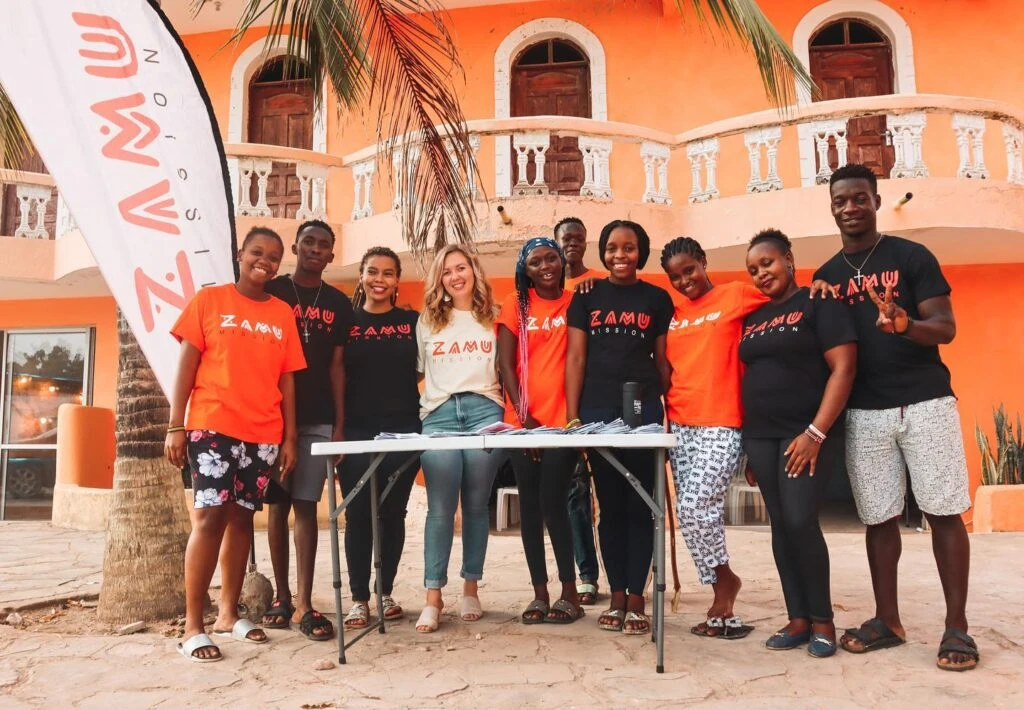
For more than three years, she has been working with teenagers and young adults in the epicenter of the modern “Sodom and Gomorrah” in the large tourist city of Mombasa, showing the benefits of a life with God and influencing the lives of young people. And since 2022, she has been serving with her husband, a native Kenyan named Cármen.

Inna Pidhaina told us about her life in an intercultural marriage, her love story, the cultural differences between Ukrainians and Kenyans, the traditional Kenyan family and child-rearing, the Dowari rite and polygamy in Kenya… She also told us what chapati and matumbo are and how people meet their parents in Kenya.
How did you end up in Kenya?
I came to Kenya in 2014. I flew from Ukraine to join a team of Ukrainian missionaries. I believed the Lord had called me there. They needed someone to work with children’s ministry and children in school. And children’s ministry is my element.
How did you meet your future husband?
In 2019, I came to Mombasa (a big city in Kenya – ed.) to start a ministry, five years after I arrived in Kenya. In my own plans, I had a list of white people, Europeans, with whom I would serve alongside the local youth. But when the coronavirus (COVID-19) started, all the Europeans went home. And I, one of the whites, stayed in Mombasa.
A week before, I was invited to one of our partner churches in the city to make a video for the church. There I met Carmen, who was in charge of the video service.
We were shooting the video and I couldn’t pronounce the words in English, I was confused and I remember laughing. And then I spoke to them in Swahili. And naturally it sparked interest. I told them my story and what I do. They offered to help me with one of the mission’s projects – to serve in a school and a prison. I was happy because at that time there was no one who could help.
Before the borders were closed because of the pandemic, I had a few days to think about going back to Ukraine. At that time, there were fears that the coronavirus would hit the big cities the hardest, especially Mombasa, because it is a tourist city and a port that lives on foreign trade. All the locals were very afraid of starvation, that looting would begin, and that if they came to rob, they would go to the whites first.
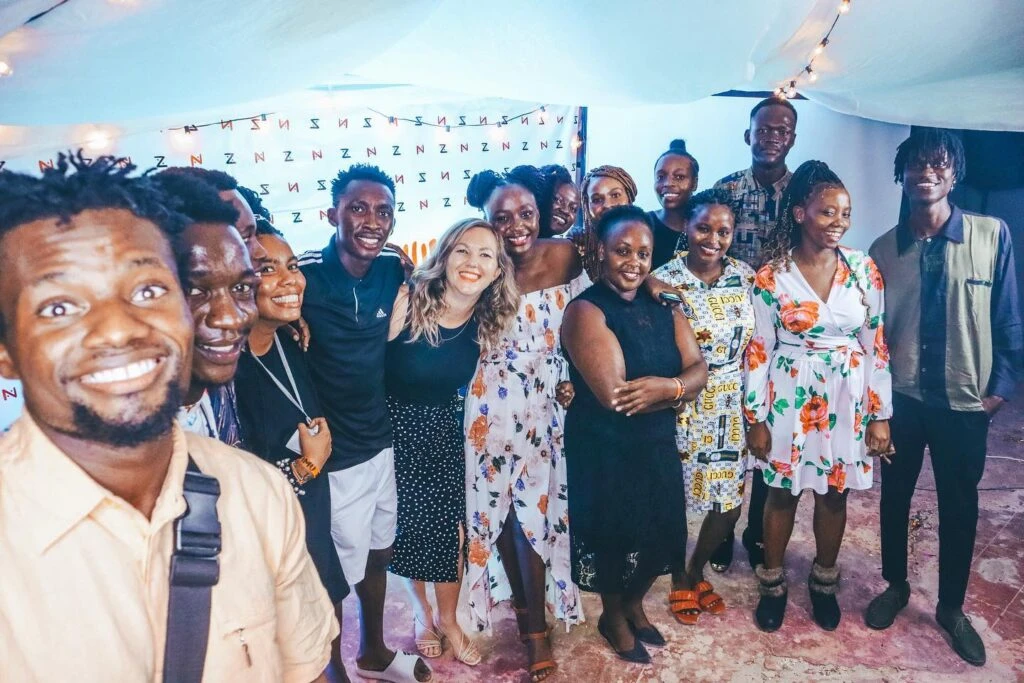
I prayed, I doubted, I thought it might be better to send our youth home while the city was closed. But my teenagers said they would not leave me and would serve until the end. I decided to stay.
We bought food before the stores closed. The situation in the city was very tense: the police were arresting people who were not wearing masks. That’s when Carmen offered his help.
What were your feelings when you saw your future husband for the first time?
To be honest with you, when we were making the first video, I had a strange feeling… No, not love, but a feeling of being at home – when I was with him, I wasn’t afraid. It scared me a lot.
Why was that? Because I didn’t trust the locals. I came to a strange city and realized that I was white. Here, people see me as white, which means they will always want to take something from me and cheat me.
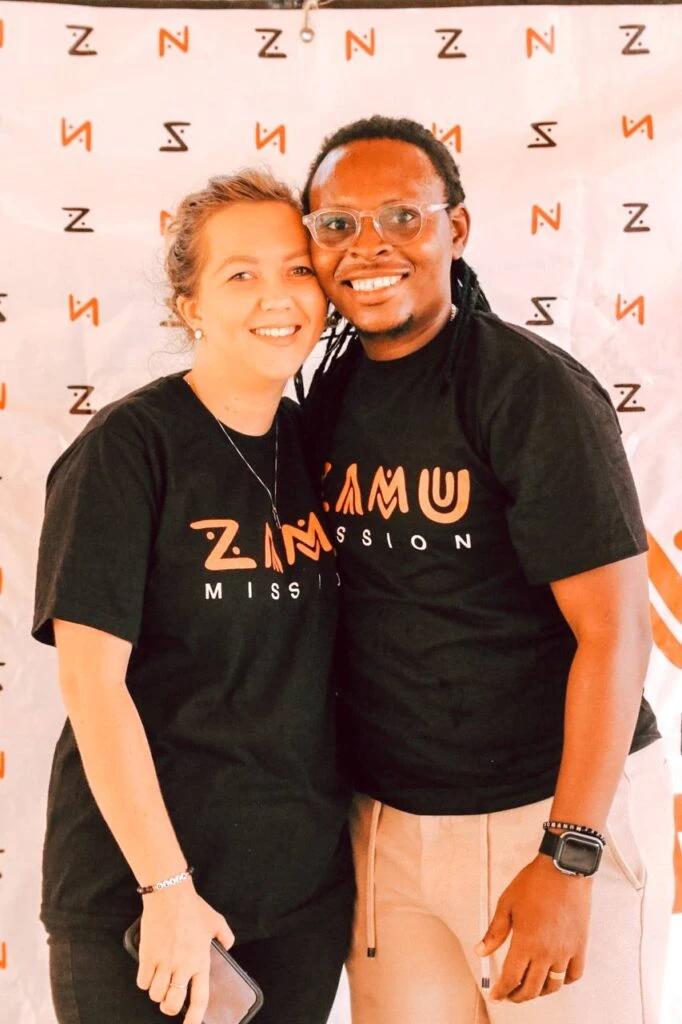
Carmen had never met a missionary who came to Kenya simply because the Lord told them to. He asked me: Who is sponsoring you? I replied: The Lord God. Who is your team? Jesus Christ and the Holy Spirit. This was a new approach for him.
Carmen asked me how I felt in Mombasa, what was the most difficult thing for me? Trusting the local people, I answered, “I don’t know why you are here, I don’t know why you came here, I will understand in a year or two. But right now I don’t believe you. I don’t know what your motives are.”
He told me later that it was very hard to listen to because he left his ministry and his family on weekends to go with us to the prison to help. And I told him that I didn’t believe him and that I didn’t know who he was.
Once I asked him if he believed that this was the last hour before the coming of Christ. In fact, the situation in our city was very tense.
He said this to me, probably three weeks after we met: “I believe Jesus is coming soon. But before that, I have plans to marry a white woman…”.
He went on the attack. I was scared. I told him I didn’t believe him…and then I wrote him back that he couldn’t do that. I told him not to write or call me anymore. He replied, “Okay, but if you need anything, I’m always here, call me.”
A few weeks later, I was arrested by the police: the youth and I went out without masks. The fine for not wearing a mask in Kenya was $200. At that time, of course, it was an unaffordable amount for me.
You had to pay to leave the police station. If you don’t have money, you go to jail.
I immediately called Carmen: “Save me, I’ve been arrested.” At that time I was panicked about Kenyan prisons because we had a case where Ukrainian missionaries were arrested and charged with a crime.
Carmen said something to him in Swahili, he laughed, and the girls and I were released. I asked him what he told the policeman. Of course he told him that I was his girlfriend. I got angry with him again and said: Why are you doing this? He replied: “Ok, you had a choice, but now you would still be in jail.”
After that, I was arrested again and called him again. This time our entire team was arrested as we were distributing aid to the needy. The boys were handcuffed and taken away. Of course I panicked because I was responsible for them! Sure, they are over 18, but still! They put me in my car, took my phone and started demanding money. Somehow I begged them for the phone, called Carmen again, he tried to help me again, and he alerted all the pastors in his church.
So I couldn’t get Carmen out of my life and we kept in touch.
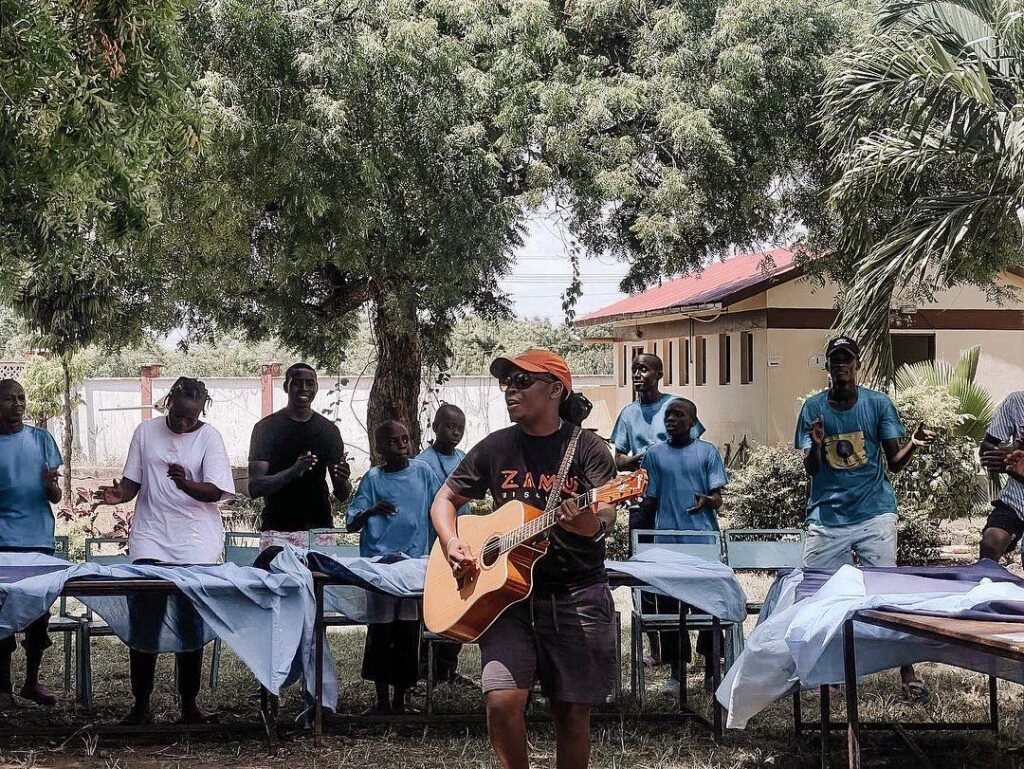
I realized that he was not so bad. Several times I called him to talk to teenage boys because I couldn’t handle them anymore. And I was surprised that they immediately heard and understood him, unlike their reaction to me.
After the epidemic ended, Carmen’s church in Mombasa reopened. His pastor invited Carmen to a meeting as a church worker. When asked if he had found a girl, Carmen replied that he was praying for one. At the time, the church council was deciding whether to give me a visa and spiritual protection.
I thought: That’s it, I’m going to be deported because I came to serve and there are already stories about me. I don’t like all that. I’m not the kind of person who dates everyone in a row, I had never dated anyone before Carmen.
Didn’t you think he was hitting on you?
I did, but I told him there was no chance of a relationship between us. He had already told me, two weeks after we met, that he wanted to marry me:
“Inna, I want to marry you.” I told him, “You don’t know me. How can you make such a statement in a few weeks?” He replied: “I’m an adult, I know what I want, and I saw it all in you.” He was so candid that it stunned me. What about courting, taking it slow…?
Ah, Africans! I thought. But it turned out that it was not the “Africans” but his character. He told me that he wanted everything to be clean and clear from the beginning, that he hadn’t come to mess with my mind, and he wanted to get married.
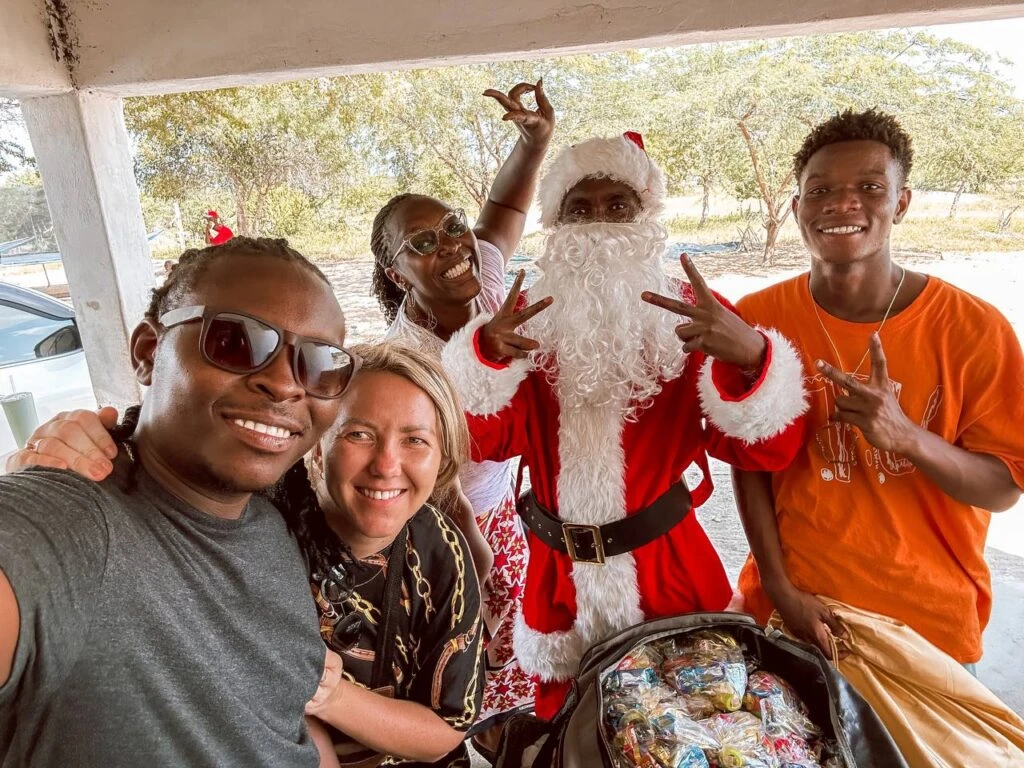
The turning point in my relationship with Carmen happened in December (we met in March), at a Christmas concert for young people. Looking at Carmen, who was already actively involved in the ministry of the Zamu Mission, I thought: what more could I need?
My criteria for a husband were simple: someone with whom we would be in the same call, who would understand and share that call. That rules out 99% of the people on the planet. I told him, “If you are going to marry me, you are going to have to marry the whole mission. Are you ready for that?” He replied that he had already thought about it and would like to join.
At Christmas I admitted to myself that this was really God’s answer. The way he works with young people, the way he loves God, the way he sacrifices, the way people around him speak very highly of him, the way they respect him, could not leave me indifferent.
The only fear I had, to be honest, was that he was African. Since I had a lot of mistrust towards Kenyans, it was transferred to him. I just imagined: if this person was white, would it be easier for me? It really scared me that he was from a different culture, a culture that we worked in and knew a lot of negative things, especially about men.
In Kenya, we mostly deal with dysfunctional populations where men just drink and beat their wives. That was my image of Kenyan men. I had never had the experience of communicating with local educated people. These were my own stereotypes.
How did you overcome them?
I watched him, saw how he took care of me, how he communicated with young people, how he could handle situations, calm me down, which was important in our case. I noticed that I was calmer around him, I didn’t panic and I felt better.
Of course I prayed a lot. God spoke to me several times as I felt guilty because I came as a missionary to serve God and I didn’t want any stories.
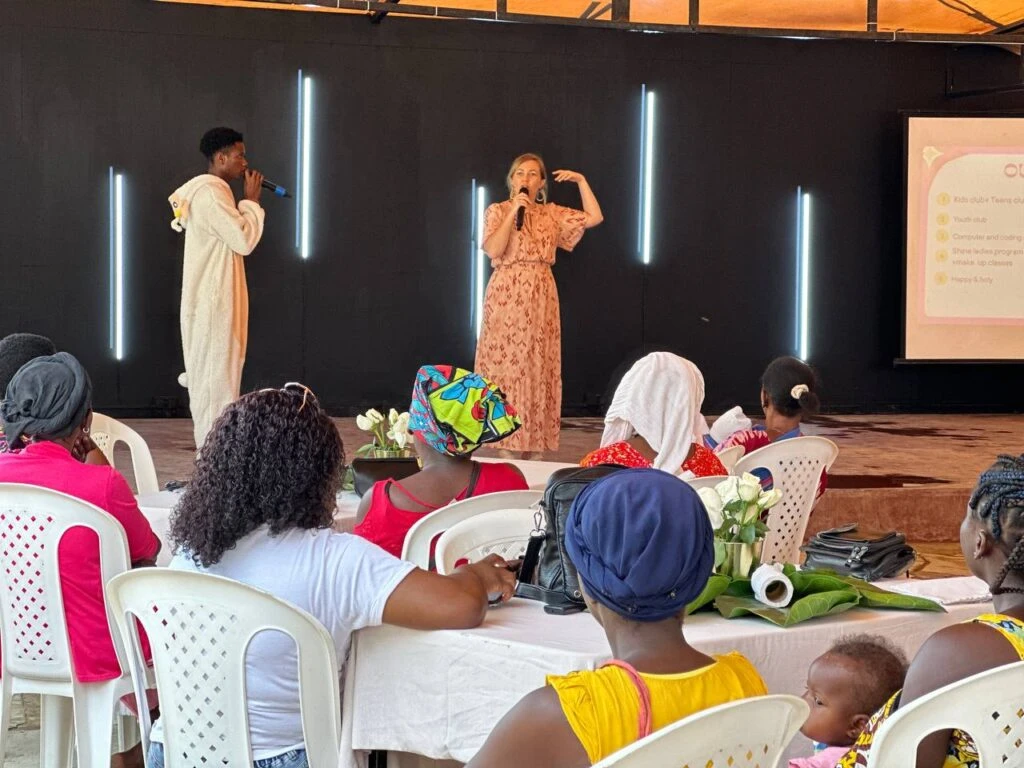
Carmen opened up to me right away about all of his past. He told me that if I agreed to anything, he wanted me to know who he was, not to hide anything from me, and not to tell anyone else about his past. He was too honest, I guess. And it ended up working out, which turned out to be a plus.
It was very important for me to see the attitude of the ministers towards him, because he was in the main team of ministers of the church. Everybody I meet says, “Oh, come on! He’s such a reliable, cool person! He helped out here and there…”.
It turned out that his friends were trying to dig into my past to see if I was lying. When they found out that Carmen had feelings for me, they contacted my former colleagues in the ministry.
And the moment of the proposal: what was it like?
We had a conversation in February.
Carmen: Are we someone for each other?
Me: You’ve never even asked me to date you!
Carmen: Well, what did we do before?
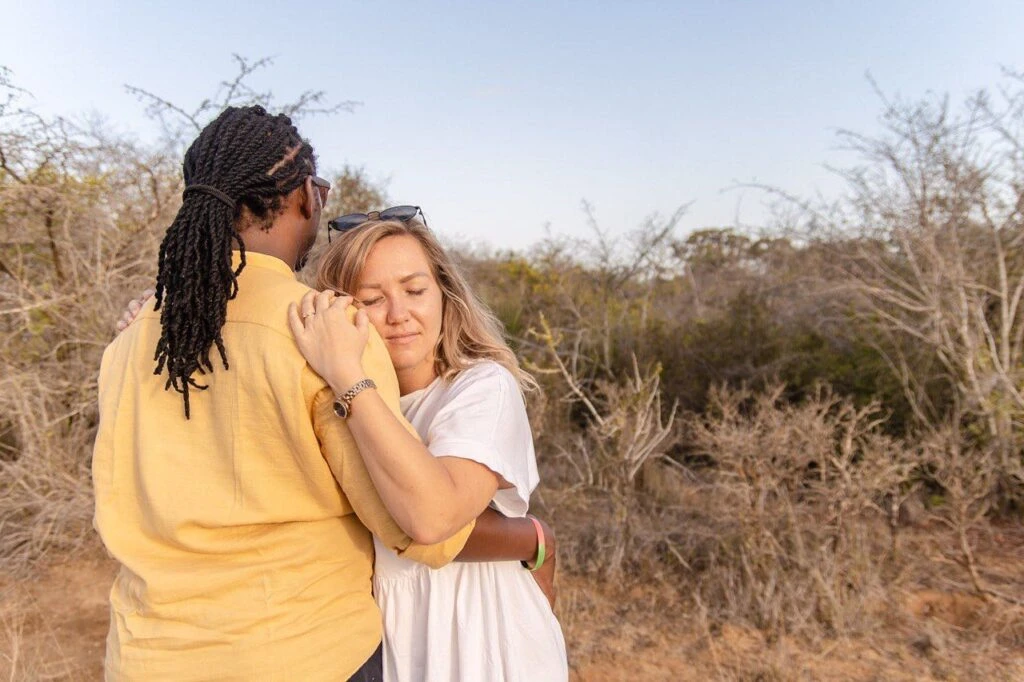
In February, he officially asked me to date him. I agreed. Even though everyone around me probably already knew that we were getting married soon. Everyone except me.
In the summer of 2021, Carmen left the church and joined our mission. It was risky: what if our relationship didn’t work out, he had already left everything behind? And we have complete uncertainty, because in the mission today there is financial support, and tomorrow it may not be there. And he knew that.
I was going to Ukraine that summer. Carmen wanted to come with me, to visit my homeland, to meet my parents and my culture.
We applied at the embassy. Three days before the flight, Carmen’s visa was not ready. For three days I panicked and cried. I didn’t even know if I should tell my parents that Carmen was going or if I was going alone! My thoughts went like this: What if this was the Lord stopping me from making some terrible mistake in my life?
As it turned out, Carmen was going to propose to me before the flight, but when he saw me hysterical, he changed his mind because he didn’t want me to give an answer in that state.
When we arrived in Ukraine, my parents decided to go for a walk with friends in Kyiv for the first time in 20 years.
Back in Kyiv, my parents and I had a meeting at my friends’ house. The first thing my dad did was to download Google Translate. And I realized: I was worried for nothing. They immediately started telling Carmen things, showing him, explaining.
As it turned out, my parents lived in the same hotel where I rented a room for Carmen. And in the morning, my mother helped Carmen with breakfast.
Carmen was organizing the proposal in Kyiv. He asked my friends to buy flowers, found a photographer, and arranged how they would lure me out. On the day he was supposed to propose, we went to the museum, and then I told him I was very tired. Carmen had to postpone his proposal until the next day.
At the hotel, Carmen discovered that he had lost his wedding ring. Together with my friend, they bought a new one.

We ended up in Khreshchatyk, where Carmen proposed to me. I wanted this event to take place at home, in my homeland. And for me it was another sign. Because one of my fears was that if I married a Kenyan, I would be torn away from my people, from my culture, and I would live with Africans forever, and I would die there, and I would be buried there (laughs).
I guess God arranged everything so that he offered me his hand in marriage right here at home (in my homeland – ed.), next to my friends and in my capital city.
What was Carmen’s acceptance of the Ukrainian culture?
He adapted quickly to the new environment. I also liked the fact that even if he didn’t know something, he would ask. For example, he had never seen a trolley before, but he said: “Teach me how to use it!” He had no self-doubt. It was very reassuring to me to see that he is very quick to adapt to different situations and loves to learn about people and culture.
My dad said after our visit to Mykolaiv: “I look at Carmen and I can’t figure out which one of us is more European.”
My mom started to worry about him and told me to watch out for him, to take care of him, not to offend him. And I said, “Mom, I’m your daughter, not him…” But it was too late, my mother had just become his mother.
What is the attitude towards marriage and family in Kenya?
When we talk about traditional Kenya, the attitude towards women is that they should be seen but not heard. In Kenyan culture, it’s not normal for a man to do the housework. When the husband comes home, it is the wife’s duty to bring a bowl of water and wash his hands, feed him and wash the dishes. He is the head, he goes to work.
To go deeper, the situation with families in Kenya is very bad. It is normal to have several wives. For Muslims, polygamy is official. At the registry office, you can choose between a civil, Christian, Muslim or traditional marriage. And in the column “Muslim marriage” you can add: wife one, wife two, wife three.
Even if we are not talking about Muslims, it is still very common for a man to have several wives.
“Dowry” or how much is our daughter worth?
In Kenya, very few people go to the registry office. Few people register their marriages legally because the traditional premarital procedure of bride price, or dowry, is complicated.
The groom and his uncles and friends must first come to the bride’s home. At the same time, he is required to bring gifts to the parents and set a table for the entire village. After that, the bride’s family has a month to consider the proposal. Then the groom is called again, and he must set the table and bring gifts. Then he is told the price of the bride: for example, 50 cows, 30 camels, and 20 goats.
The groom’s uncles or friends bargain and bring the price down. They come to an agreement. It is not necessary to bring the ransom in cows, it can be in cash.
The groom does not have to pay all at once, but partially, but then he pays for his wife for life. After the first payment, the preparations for the wedding begin.
It may be a good tradition, but what groom will go through with it when no one in Kenya has any money? People are already suffering. And instead of parents helping their children to build a life, they sell their daughters. And I think that’s one of the reasons why people don’t want to get married, they want to live together without any obligations.
What was your wedding like?

We decided that the wedding would be a good opportunity to do everything the way we wanted. On his side, people understood that there could not be a Kenyan wedding because I was white. But there could not be a Ukrainian wedding or our traditional Slavic church wedding. A wedding on the beach, barefoot. It was 40 degrees in Mombasa, so Carmen wore his pants to the wedding and then changed into shorts. It was out of tradition, out of culture, out of time.
About traditional Kenyan food
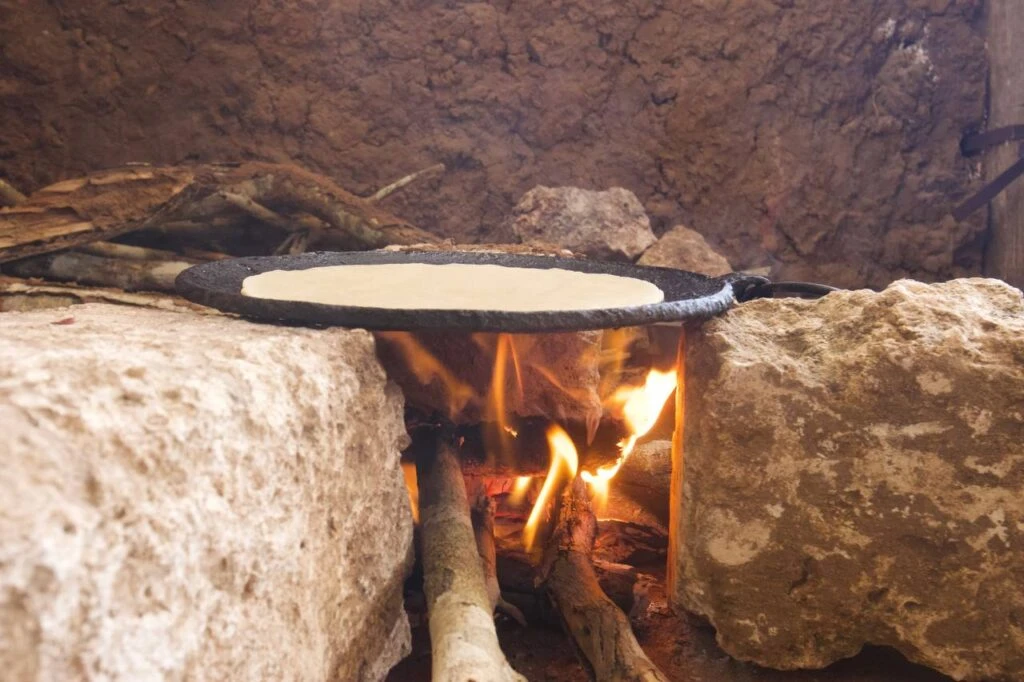
Chapati. This is a round flat bread. To make it, you mix flour and water, add a little oil, roll it out and fry it in a pan over charcoal. Beans are added and cooked with onions, tomatoes and spices.
In Mombasa, coconut milk is added to this dish. In other parts of Kenya, coconut is not available, so the sauce is made with water. But coconut is considered expensive and not everyone can afford it.
Is there any food you won’t eat?
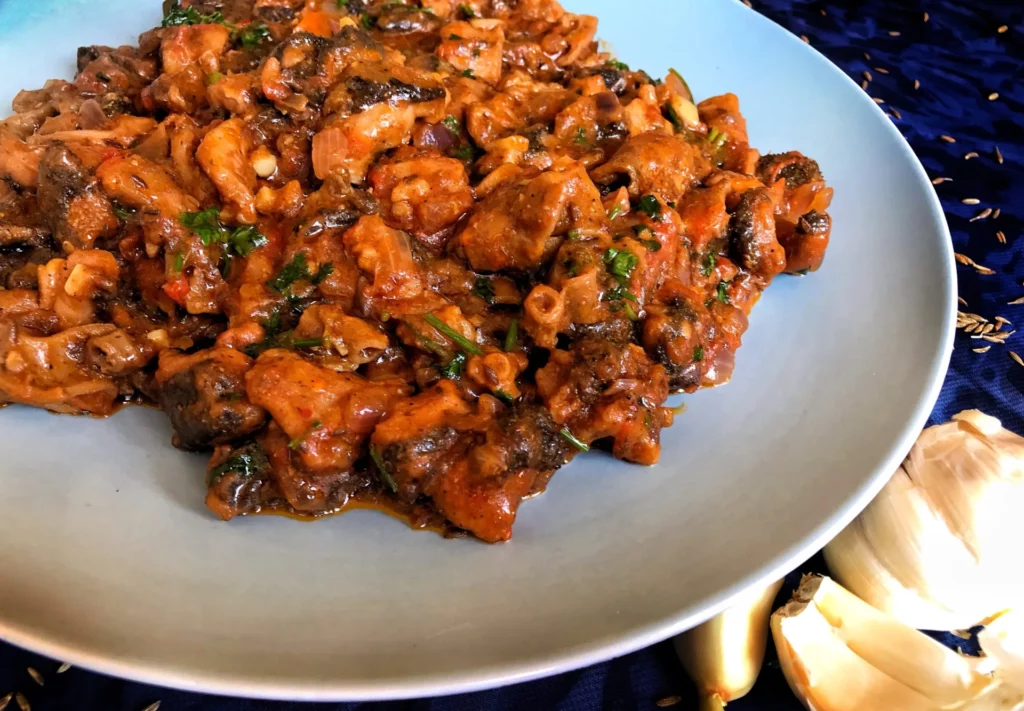
There is only one dish in Kenya that I still can’t eat. It’s Carmen’s favorite dish, matumbo. It’s a sauce made from cow stomachs. Honestly, I’ve tried and tried, but I still can’t accept it.
Do you feel a difference in domestic life?
Not really in everyday life. Carmen is not a typical Kenyan man. He can do the dishes, clean, cook. Or we do it all together. In the ministry together and at home together. We do everything together and maybe that is a blessing for me.
Do you think it is better for a husband and wife to serve together or not? How does it affect the strength of the relationship?
I would say it depends on the situation. To be honest, we have never had conflicts in our family over family issues. We mostly disagree because of our ministry. Is it easy to serve and live together? I don’t think it’s easy. It seems to me that when a husband and wife either work or serve in the same ministry, it still has a great impact on family relationships. And it can either strengthen them or not.
It’s probably very important how people come to an agreement. For us, it’s been a process, and I don’t know if it’s finished. Separating the ministry from the home is 100% impossible in our case. Although we have tried, we have set rules: after 6 p.m., no more ministry and no more talking about it. But at ten o’clock in the evening someone will call – “I had an accident” – and all our rules will have no effect.
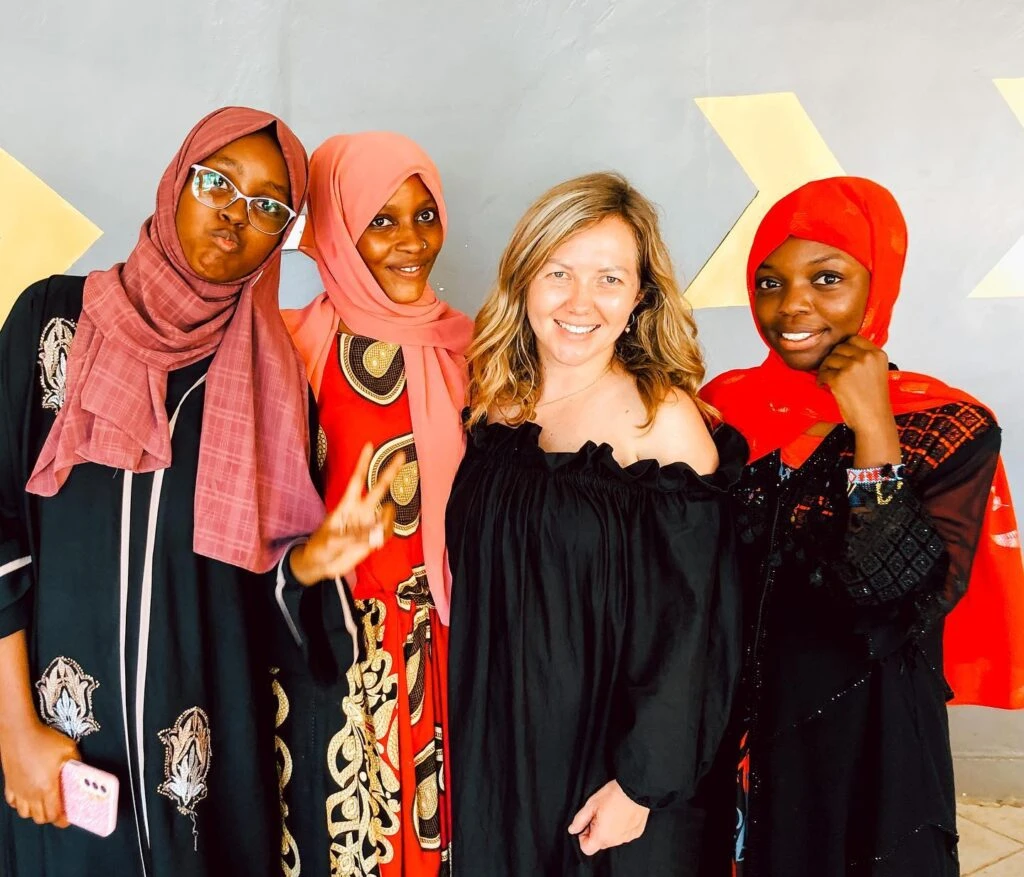
I started the service and then Carmen came and he is my husband, so he is the head of the house. I used to decide and my team would agree. Now I have to discuss it with Carmen before I even suggest it to the team. That makes the decision-making process longer. But on the other hand, there is the possibility of not making hasty decisions.
We can’t imagine our lives without ministry. Have we ever felt like giving up and becoming ordinary people? Yes, it happens. But ministry is not easy, it means letting many different people into your life.
Financially, it’s easier to live alone: You’ve eaten or you haven’t eaten, someone will feed you.
And now there are almost three of us. You have to have double faith. Is it worth it? Of course it is worth it in the heavenly perspective.
How are children educated in Kenya?
Traditionally, children are not educated, they are born, they grow up on their own. Children should be seen but not heard. For example, in many families, according to their culture, the parents eat first, and if there is food left, the children eat.
If a child is sitting in a high chair and an adult comes in, the child should leave immediately so as not to disturb the adults. Ignoring. Yes, there is no such thing as hugging a child in Kenya. If a child disobeys, he or she is simply beaten with a stick, regardless of age.
Children are not treated as individuals. Where does all this come from? Many have no parents. For example, we have a girl who gave birth to a son at the age of 18-19. She ran away from home because of her father and got pregnant. When she came to God, she told me that she often felt guilty because she poured out her anger on the child, beating him because she had no work or food.
She never thought that after the birth of her child, she would not be able to go to nightclubs, that boys would not pick on her like before. This child made her life difficult.
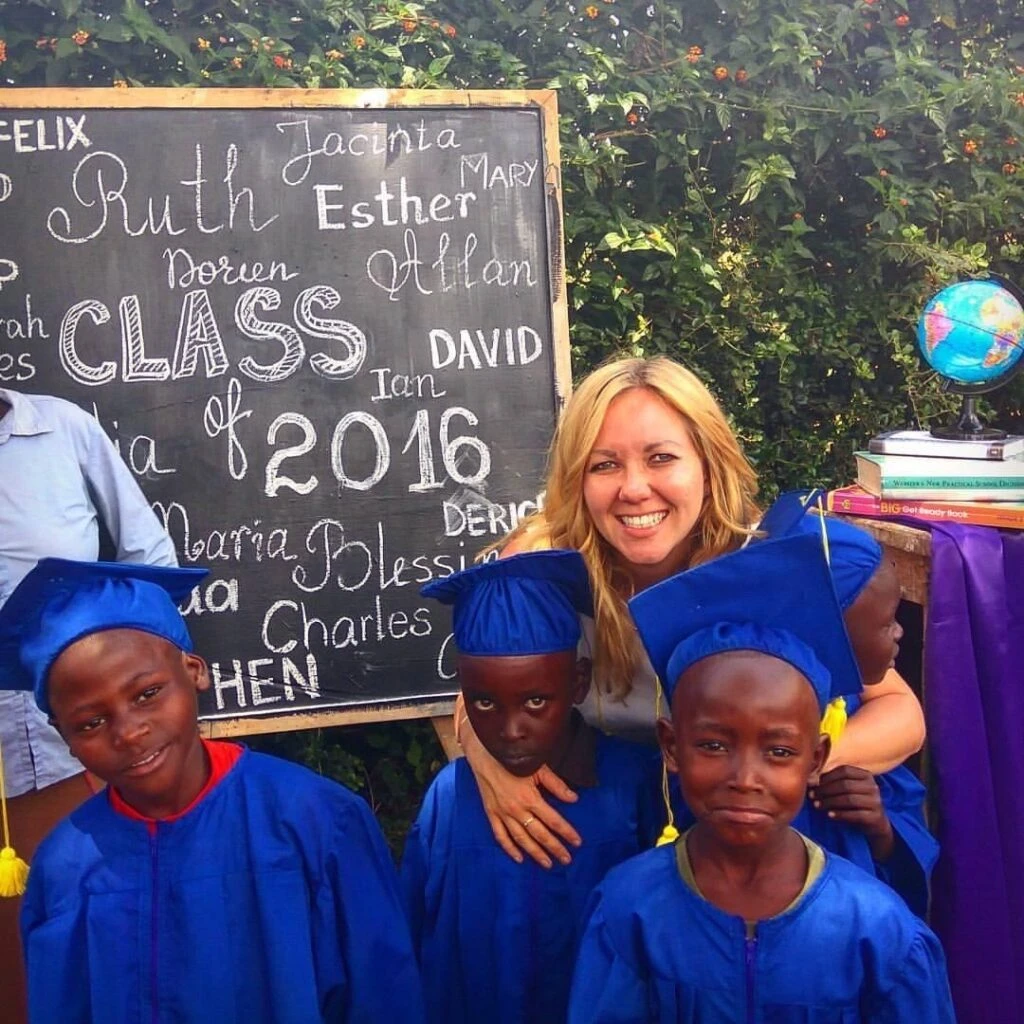
There are many cases here where mothers give birth to children unplanned and then don’t know what to do with them. In our youth ministry we have many teenagers who are 15 years old and their mothers are 32-33 years old. There are two families where the mothers left their 14-year-old girls and went somewhere else. The girls live alone, no one gives them food, no one pays for their schooling, and they are evicted from their homes for not paying rent. They survive on their own.
In Kenya, there is a tradition: in many tribes, a boy is circumcised at the age of 13 as a sign of leaving childhood. And it’s a big celebration.
But if parents want to circumcise when the child is just born, they do it in a hospital, and all these procedures are official, not ritual.
Are you prepared for your children to enter into intercultural marriages?
I think that after our history, we have no right to tell our children that we are not ready. The job of parents is to raise their children so that later, no matter who they choose, their parents will have the courage to trust that choice.
Many people have told me that intercultural marriage is very difficult. But it all depends on us and how much we are willing to accept each other, not to change, but to accept.
We talked to other couples and realized that absolutely everyone has conflicts in their families. It doesn’t matter if it’s an intercultural marriage or if you were born and raised in the neighborhood. Each family is a different culture. Character and temperament also play a role. Culture is one of the differences, but not the main one.
How did you meet his parents?
I think that was one of my fears. Not because of Carmen’s family, but because of what I knew about Kenya. What if I came and they told me to kneel down and bow to my parents? That is more practiced in Uganda, in Kenya – in the tribes.
What if they told me to come to my parents only in traditional dress and with a basket on my head? Or maybe I’ll come to them and they’ll test me: “Make my son a chapati.” And it’s not that I can’t, I just don’t want to.
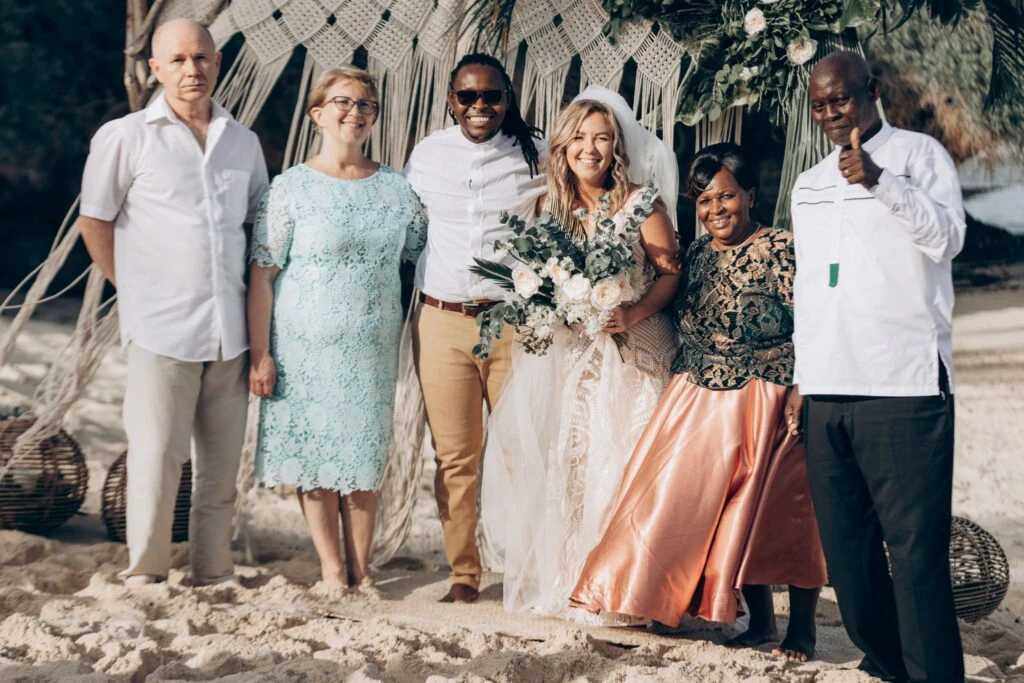
But Carmen always said that his parents were very simple people. I couldn’t understand if he was trying to reassure me or if it was true that his parents were like that.
But when we arrived, I saw that everything was as Carmen said. Father is a very educated man, he asked me about the history of Ukraine, the Soviet Union, and even then about Putin. In general, he knew all the news, which surprised me a lot. Father speaks English. Mother not so much. But we have a nice smile and communicate in Swahili. She has three brothers. Two of them were there and told me: Inna, the fridge is over there.
They don’t have any special traditions. Even at the wedding, I was the one who told my parents that they missed their chance to get a camel because Carmen had to pay a bride price for me (laughs). Why did you allow him to pay with flowers and gifts? His parents blessed us and prayed for us.
Do you feel a big difference in mentality between you and your husband?
The difference is there. But I don’t know if it’s with Carmen or with Kenya. I think he has become a bridge between me and Kenya because his mentality is not quite traditional.
I feel a difference between Ukrainians and Kenyans in general. For example, my personal observation is that Ukrainians are much closer in mentality to Kenyans than to Americans.
Interesting, how is it expressed?
The sincerity of the nation, the friendliness. Ukrainians don’t smile a lot, but they’re very kind people: they’ll feed anyone who comes to the house, they’ll help you collectively if you’re in trouble, and they’re always there for you.
Americans always smile, but the nation is closed. Everyone has their own territory, you have to keep a distance between people. Even in a store, you can’t get closer than a meter in line.
I see that Ukrainians in Kenya find it easier to serve and understand Kenyans than Americans.
Probably the biggest difference in the mentality of Ukrainians and Kenyans, as I noticed, is the love of freedom. If Ukrainians don’t like the government, they overthrow it.
Ukrainians will never pay the price of freedom of speech and will choose their rights.
Kenyans are taught from school that in order to survive you have to shut up, have no opinion and obey.
Why do they beat children with sticks in school? If a child gives an answer that is not what the teacher expects, he or she is beaten. That is, your opinion must coincide with the teacher’s opinion. Your opinion must coincide with the opinion of the authorities, your opinion must coincide with the opinion of the police.
You can’t argue with the police. Carmen taught me that. When the police stopped me on the street, how did I usually act? I would say hello and ask them why they were stopping me. I would try to assert my rights. Carmen would scold me for that and tell me that I had no rights and could not have any. And if I wanted to claim them, they would definitely show me that I didn’t have them.
You can’t swear here, you can’t defend your rights. The approach is: people don’t know their rights, and the authorities are always right, so you have to be friends with them.
Although I understand that freedom in Kenya is not always applicable, I believe that our (Ukrainian – ed.) understanding is correct. I do not refuse, but I think it is right to fight for my freedom.
I often ask my husband: why haven’t you had a revolution in your country if this is happening?
He replies that this is the difference between Ukrainians and Kenyans. In Kenya, no one will go for a revolution, everyone will look for what is beneficial for them. The Ukrainian people come out, die together, and fight. And they see this difference.
Thank you for the conversation.
Christ is the Answer Ministry Press Center.
